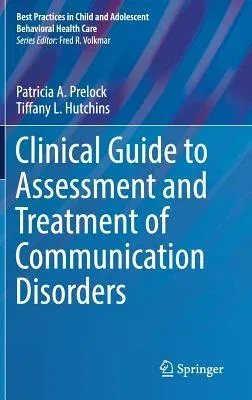This book examines the typical pattern of communication development in
children and adolescents to enable primary care physicians as well as
other clinicians, therapists, and practitioners to assist parents in
making informed decisions based on current research. It offers an
overview of communication disorders in children and adolescents that
typically present before adulthood. The book describes current
assessment, diagnostic procedures, and evidence-based interventions.
Chapters outline the standard course of speech milestones and ages to
begin screening for deficits and their risk factors. Subsequent chapters
review best practices for every aspect of treatment, including care
planning, discussing disorders and interventions with parents, making
referrals, and collaborating with other providers. The book also
discusses evidence-based interventions for specific disorder types such
as language impairment, stuttering, language disabilities, and hearing
impairment. In addition, the book offers guidance on how to speak about
care planning as well as quality of life issues related to communication
disorders with other caregivers and parents.
Featured topics include:
- Screening and identification procedures of communication disorders.
- Key elements to providing family-centered care.
- Common causes, assessment, and treatment of specific language
impairment (SLI) in children.
- Hearing loss and its impact on the development of communication in
children.
- Attention deficit/hyperactivity disorder (ADHD) and the role of
attention in the development of language in children.
- Communication development in children with autism spectrum disorder
(ASD).
The Clinical Guide to Assessment and Treatment of Communication
Disorders is a must-have resource for clinicians and related
professionals, researchers and professors, and graduate students in the
fields of child, school, and developmental psychology, pediatrics and
social work, child and adolescent psychiatry, primary care medicine, and
related disciplines.

